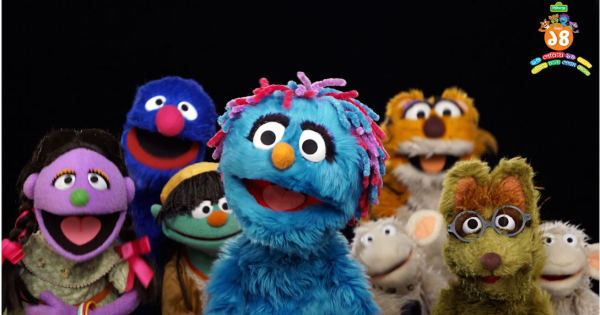Sisimpur Returns for 14th Season
Desk Report
প্রকাশিত: ১২:০৩ পিএম, ১৪ অক্টোবর ২০২১ বৃহস্পতিবার

Beloved friends like Halum, Tuktuki, Ikri, and Shiku are back for new adventures to help Bangladeshi children learn about empathy and creative problem solving.
The new season of favorite children’s program Sisimpur is returning with new adventures and lessons from favorite friends like Halum, Tuktuki, Ikri, and Shiku. Season 14 of Sisimpur will premiere on Duranto TV on Friday, October 15th, with episodes following on BTV and Masranga TV.
Based on the theme of empathy, the new season is full of humor and joy from favorite Sisimpur friends, along with characters like Moyra, Asha, Khushi and Bahadur. Ikri is back to help children learn to write by drawing letters from the Bangla alphabet with sound and visual cues. Shiku’s “Can You Tell?” quiz show returns for another season of fun learning through games featuring Sisimpur friends. In the “Problem Solver Grover” segment, young viewers will learn new ways to creatively solve problems with Grover and Raya, with Grover’s signature comedy infused in each segment.
State Minister for Primary and Mass Education Mr. Md. Zakir Hossen will inaugurate the Season 14 of Sisimpur at a virtual launch event. Among others will present in the program are Secretary of the Ministry of Women and Children Affairs Mr. Md. Sayedul Islam, Mission Director of USAID Ms. Kathryn Davis Stevens, President of Sesame Workshop Ms. Sherrie Westin, Director General of BTV Mr. Shohrab Hossain, Executive Director of Masranga Television Mr. Ajoy Kumar Kundu, Director of Duranto Television Mr. Abhijit Chowdhury, Vice Chairman of Asiatic Ms. Sara Zaker and Executive Director of Sesame Workshop Bangladesh Mr. Shah Alam.
Familiar friends from Sisimpur Khushi, Ikri, Shiku, Tuktuki, Halum, Raya and Grover will also join the virtual event.
Made possible through the support of the American people through the United States Agency for International Development (USAID), the Early Childhood Development Mass Media Activity, Sisimpur, has been helping children across Bangladesh grow smarter, stronger, and kinder since 2005. The Ministry of Women and Children Affairs is providing support in airing of the Sisimpur programs and the Ministry of Primary and Mass Education is supporting in school-based programs.
For more information on USAID’s Early Childhood Development Mass Media Activity, Sisimpur, visit http://sisimpur.org.bd/ and the Sisimpur YouTube Channel.
About Sesame Workshop
Sesame Workshop is the non-profit media and educational organization behind Sesame Street, the pioneering television show that has been reaching and teaching children since 1969. Today, Sesame Workshop is an innovative force for change, with a mission to help kids everywhere grow smarter, stronger, and kinder. We’re present in more than 150 countries, serving vulnerable children through a wide range of media, formal education, and philanthropically funded social impact programs, each grounded in rigorous research and tailored to the needs and cultures of the communities we serve. For more information, please visit sesameworkshop.org.
About Sesame Workshop Bangladesh
Sesame Workshop Bangladesh (SWB), the branch office of Sesame Workshop, produces Sisimpur, the local version of world-famous children’s television program Sesame Street in Bangladesh. The TV show has been airing since 2005 with a view to making early childhood education delightful and enjoyable for Bangladeshi children.
About USAID
The U.S. government, through the U.S. Agency for International Development (USAID), has provided more than $8 billion in development assistance to Bangladesh since its independence. Additionally, the U.S. government has committed $96 million of assistance from multiple agencies to support COVID-19 response efforts. In 2020, USAID alone provided over $200 million to improve the lives of people in Bangladesh through programs that expand food security and economic opportunity, improve health and education, promote democratic institutions and practices, protect the environment, and increase resilience to climate change.
